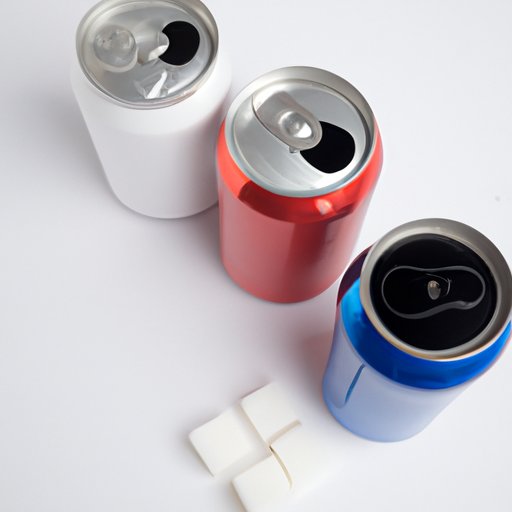
Is Diet Soda Really Better Than Regular Soda?
Soda is a popular beverage consumed by millions of people worldwide. It is available in a variety of flavors and types, with diet soda being a popular choice among individuals looking to reduce their sugar intake. However, the question remains, is diet soda better than regular soda? In this article, we will explore the scientific analysis of soda ingredients, expert opinions on soda consumption, effects of artificial sweeteners, drawbacks of diet and regular soda, survey results on soda consumption, and finally, a conclusion on which is better for overall health.
Scientific Analysis of Main Soda Ingredients
Diet soda and regular soda contain similar main ingredients, including carbonated water, caramel color, phosphoric acid, and caffeine. Regular soda also contains high amounts of sugar, while diet soda uses artificial sweeteners, such as aspartame or sucralose, to provide the sweetness without the calories.
Phosphoric acid found in both diet and regular soda can erode tooth enamel and lead to dental problems over time. Caramel color is a substance used to provide the color in soda and has been linked to an increased risk of cancer in studies involving animals. However, this effect has not been reproduced in humans.
Expert Opinions on Soda Consumption
Experts and health organizations have voiced their opinions on soda consumption. The American Heart Association recommends limiting the intake of both diet and regular soda due to their negative impact on health. Studies have linked regular soda consumption to weight gain, heart disease, and diabetes. On the other hand, some experts argue that diet soda may not be any better for health. Several studies have linked diet soda to an increased risk of stroke, kidney disease, and type 2 diabetes.
Effects of Artificial Sweeteners
Artificial sweeteners used in diet soda, such as aspartame and sucralose, provide the sweetness without the excess calories. However, research has shown that these sweeteners can have negative effects on the human body. Aspartame has been linked to headaches, dizziness, and even seizures in some individuals. Sucralose may affect the gut microbiome and lead to digestive issues. It is important to note that the FDA has approved the use of these sweeteners in moderation, but research is still ongoing into their long-term effects.
Regular soda contains high amounts of sugar, which can lead to weight gain and other health problems. Sugary drinks are also linked to heart disease and type 2 diabetes.
Drawbacks of Diet and Regular Soda
Soda intake, whether regular or diet, can negatively impact dental health, leading to cavities, enamel erosion, and other problems. Consuming large amounts of soda can also lead to weight gain, especially in children and teenagers who consume soda regularly. Obesity is a risk factor for a number of health problems, including heart disease, type 2 diabetes, and some cancers.
Survey on Soda Consumption
A survey conducted on soda consumption found that individuals chose diet soda over regular soda to reduce calorie intake and lose weight. Some individuals also preferred the taste or had concerns about the sugar content in regular soda. However, the long-term health implications of consuming diet soda over regular soda are still unclear, and more research is needed to definitively answer this question.
Conclusion
While both diet and regular soda have drawbacks, it is clear that reducing soda intake is beneficial for overall health. Experts recommend limiting soda intake, especially for children and teenagers, due to their negative impact on dental health and weight gain. For individuals who choose to consume soda, it is recommended to choose the one with lower sugar or artificial sweeteners in moderation. Drinking water or other unsweetened beverages is the best choice for overall health.





